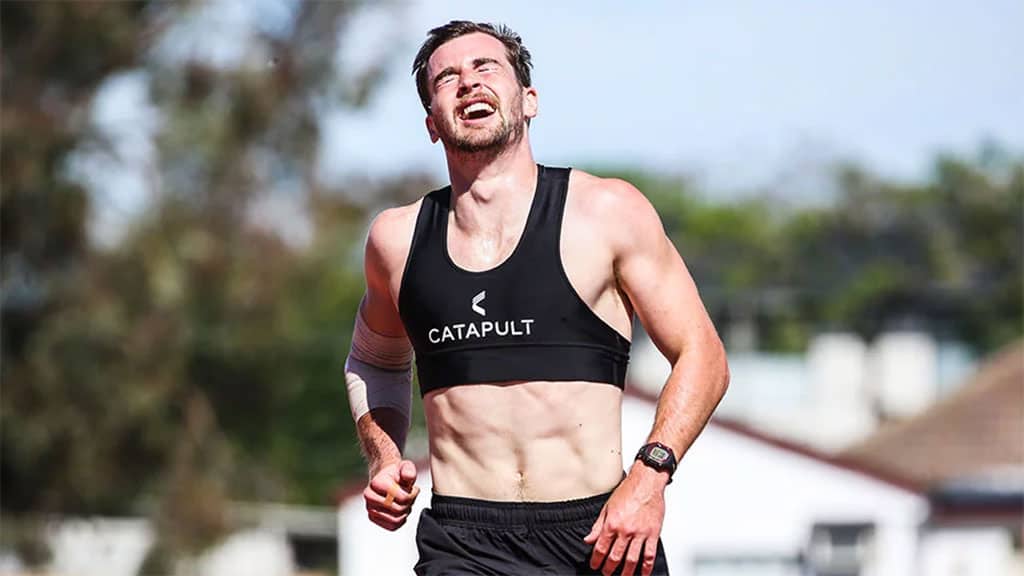Contents of Research Review
- Background & Objective
- What They Did
- What They Found
- Practical Takeaways
- Reviewer’s Comments
- About the Reviewer
- Comments
Original study
Bell, L., Ruddock, A., Maden-Wilkinson, T., Hembrough, D., & Rogerson, D. (2021). “Is It Overtraining or Just Work Ethic?”: Coaches’ Perceptions of Overtraining in High-Performance Strength Sports. Sports, 9(6), 85.
Background & Objective
Today, opportunities available through digital media (electronic journals and social platforms) have revolutionised the way science and practice interact. The world is well connected and a strong foundation in understanding training and physiology is a requisite for coaches and researchers alike. As we continue to bridge the gap between literature and application, shared definitions and understanding are important across parties to better study and understand how to best optimise the training environment.
One specific area that needs clarification is the definitions of and differences around overtraining (OT) and overtraining syndrome (OTS). Therefore, the purpose of this study was to understand how strength sport coaches think and work around the topics of OT and OTS when prescribing and managing training.
What They Did
The researchers interviewed 14 strength sport (e.g., weightlifting, powerlifting, sprinting, jumping, throwing) coaches (12 males, 2 females) with four to 57 years of experience (mean = 14.4 ± 13.4 years) from around the world (United Kingdom, Republic of Ireland, United States, and New Zealand) (see Table 1). Backgrounds in education ranged from no formal degree to a Doctor of Philosophy and a range of certifications through governing bodies across strength sports. To best summarise and understand the information collected from the interview process, reflexive thematic analysis was used.
All interviews were conducted by one principal investigator for consistency, and analysis for themes was completed blindly, with neither the investigator nor coach knowing what theme each question pertained to. Emphasis was placed on exploring each coach’s personal experiences rather than identifying similarities between them.
Results were then summarised based on the definitions of OT/OTS, its prevalence, and associated symptoms and recovery time.

What They Found
- Strength sport coaches are unaware of a comprehensive definition of OT or OTS, with understanding on the matter varying.
- Terminology around OT and OTS was inconsistent and broad regarding diagnosis, time course of recovery, and the distinction from planned overreaching. With no mention of functional or non-functional overreaching from any coach.
- Coaches seemed unconcerned about the rate at which OT or OTS occurs for their athletes, suggesting their training has room for increases in load (volume or intensity), with no maladaptation expected.
- Overall fatigue or musculoskeletal injury were the most common symptoms that were identified as suggestive of OT or OTS.
- Coaches demonstrated a lack of appreciation for the severity of potential OTS, with many suggesting recovery took only a matter of days (<2 weeks).
Practical Takeaways
- OT and OTS are not well-understood topics, with no mention of either word in articles regarding collaborative research in team sports or evidence-based practice in high performance sport. Regardless, it is a serious and severe state that needs to be prevented and managed appropriately. Coaches must understand this area and work to identify associated signs and symptoms as soon as possible through monitoring fatigue and athlete feedback via conversations or questionnaires.
- When developing a thorough and complete understanding, being able to define and differentiate the differences between function and non-functional overreaching, OT, and OTS is important. Once the effects are fully realised, coaches can better appreciate why it is not productive to push an athlete to these limits. Training harder does not necessarily have a greater return on investment – aim to optimise, not maximise.
- Since a prolonged decrease in performance is the most dependable gauge of overtraining in strength training (see HERE), it is critical to monitor the loads lifted in primary exercises (e.g., squat, deadlift, bench press) across the weeks and months of lifting. Bolster the validity of these lifts by keeping technique solid and consistent, as well as pairing with a subjective rate of effort (e.g., bench pressing 100kg for three repetitions with a rating of perceived exertion of an 8 out of 10) – respecting that it does not always have to be maximal effort. Further, use of velocity-based devices can provide an objective measure of barbell velocity at a given load – if opportunity allows, this can serve as an excellent performance metric to monitor (e.g. back squatting 140kg for three repetitions with an average mean velocity of 0.6 m·s-1).
- Coaches must understand that training is not the only stressor an athlete endures on a daily basis. Appreciating social and psychological influences can drastically impact an athlete’s ability to recover and adapt to training. What is a great training plan for one athlete may be far too much for another. So, it is important to respect the individual and their response to the training load and not to ignore warning signs of negative training responses. Be active in asking how athletes feel and observant in looking for non-verbal signs of changes in energy and mood. Make a physical note on these at least weekly for retrospective review, rather than working from memory.
- Regular (daily, weekly, or monthly) assessment of an athlete’s physiological response through blood biomarkers/hormone levels or measures around heart rate variability or response can be reliable and effective to provide objective (non-emotional) data of the systemic response of an athlete undergoing an intense or high volume training block. For example, a change of ± 10 beats·min-1 in a heart rate measure during sleep or following a bout of activity can be a significant enough variance to note elevated fatigue or stress. With strength training, intensity seems to be the variable that is most stressful, whereas, with endurance training, volume is the variable that can often lead to OT.
Author Comments
“In my opinion, the lack of evidence and understanding around this topic is rooted in the difficulty (and potential ethical issues) encountered when requiring athletes to push themselves to the stage of OTS for the sake of research. Even within a typical longitudinal observational study, it would be negligent for a coach to continue when noticing signs and symptoms associated with OT. Therefore, much of this information is theoretical and leads to the inconsistencies noted among coaches in this study. As opportunities around monitoring athlete fatigue continue to grow and the appreciation for mental- and physical health is reaching an all-time high, coaches must step up and manage OTS appropriately.
“As practice and research continue to grow closer together, coaches need to learn from the numerous resources shared in this review. Research has previously accepted the inconsistency in definitions, but in order to differentiate and advance this field of understanding, we need clarity and consistency in the verbiage around OT and OTS. That way, when coaches implement overly-aggressive training plans, both athlete health and performance are at the forefront. Coaches should look to governing bodies for the most up-to-date evidence-based practice and take the time to talk with other coaches and athletes to move in a positive and productive direction that aims to optimise training.”
Want to learn more?
Then check these out…
Want more research reviews like this?
Every coach understands the importance of staying up-to-date with the latest sports performance research like this, but none have the time, energy, or even enjoys spending hours upon hours searching through PubMed and other academic journals. Instead, your precious time is better-spent coaching, programming, and managing all the other more important aspects of your job.
The solution…
The Performance Digest is a monthly summary of the latest sports performance research reviewed by our team of hand-selected experts. We sift through the 1,000+ studies published in the realms of sports performance every, single month and review only those which are important to you. Each monthly collection contains 15 research reviews in the following disciplines:
- Coaching
- Strength & Conditioning
- Technology & Monitoring
- Fatigue & Recovery
- Youth Development
- Nutrition
This comprehensive topic base ensures you’re constantly expanding your knowledge and accelerating your career as quickly as possible. The reviews are hyper-focused, 1-page summaries, meaning there’s no jargon or wasted time. We cut right to the chase and tell you what you need to know so you can get back to coaching.
Join the thousands of other coaches who read our reviews every, single month. Click here to get access.


